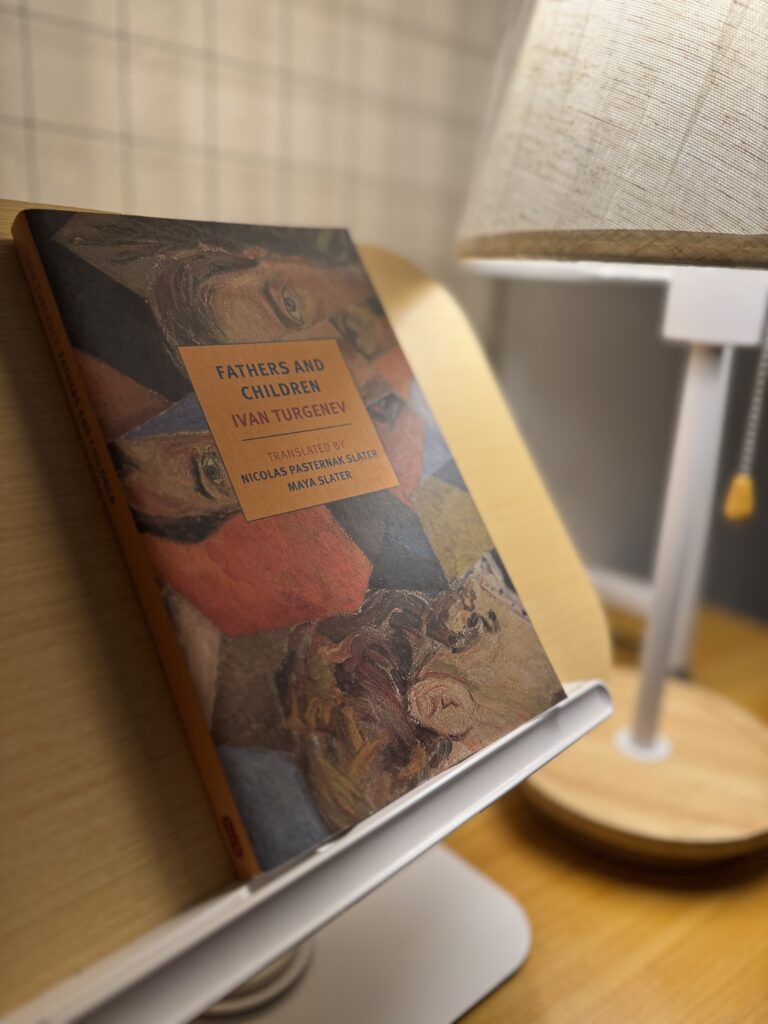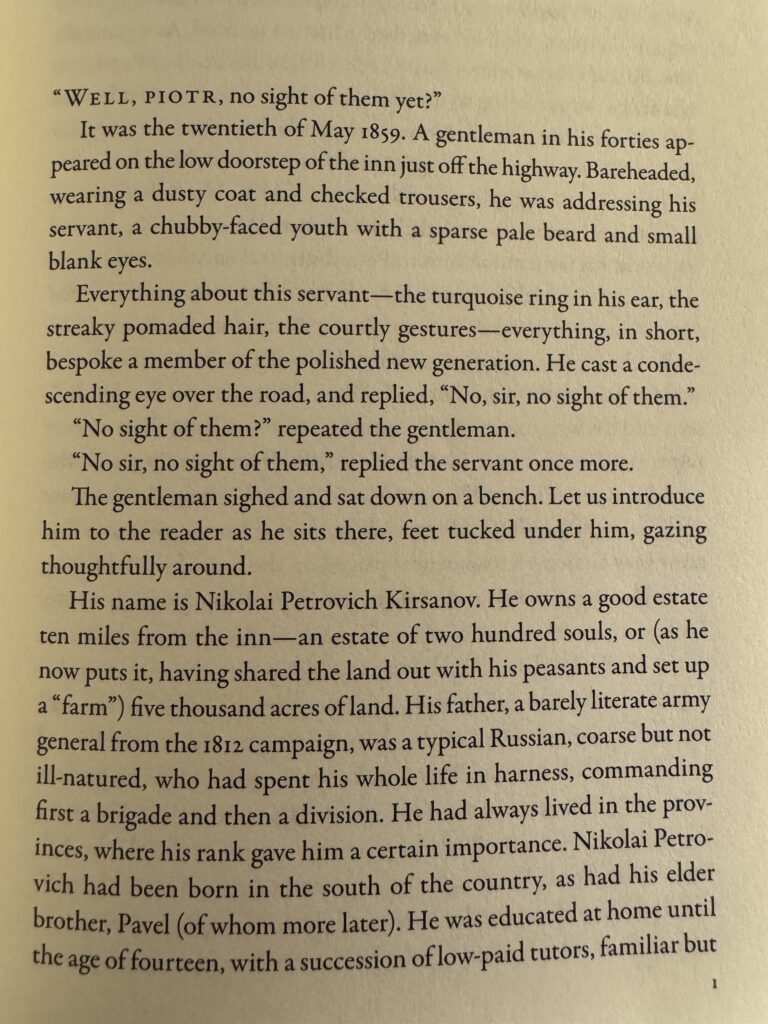I started reading Fathers and Children (or Fathers and Sons) to understand more of Dostoevsky’s Notes from Underground because Turgenev’s “Fathers and Children” was responded by Chernyshevsky’s “What’s to be done?” which in turn was responded by Dostoevsky’s “Notes from Underground”.
What stands out to me the most from Fathers and Children is how it follows the story of a young adult who is a nihilist. For those who don’t know, a nihilist is someone who does not believe that meaning can be found in the world; that there is no basis for human values and that institutions like marriage, government, and religion are ultimately meaningless.
We get to see what it’s like for a nihilist to relate to friends, enemies, potential lovers, and family members. We get to have some answers to questions like “What happens when a nihilist falls in love?”, or “How does a nihilist face death?” Is it all despair and gloom? Surprisingly, not all the time.
Beyond this, the novel is about relationships and how it looks like in Russian family and society in the mid 19th century. There were heart-warming and funny moments throughout the story which I didn’t expect but enjoyed nonetheless.
I also like how the story wraps up and the narrator gives an update on the life of the characters in the ending. It provides a feeling of satisfaction to the conclusion of the story.
For the English translation I recommend NYRB Classics edition (translated by Nicolas and Maya Slater). This is the latest translation (2022) as of date and I found it to be more modern and readable than the Alma Classics and Timeless classics edition.


Pingback: Sometimes I despise myself. Is that why I despise others too? - Icon's Notes
Pingback: The revolution begins in the thinking mind - Icon's Notes